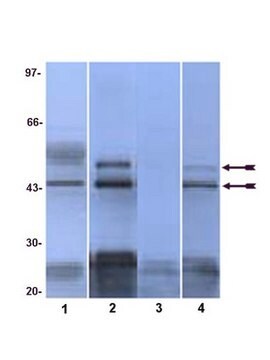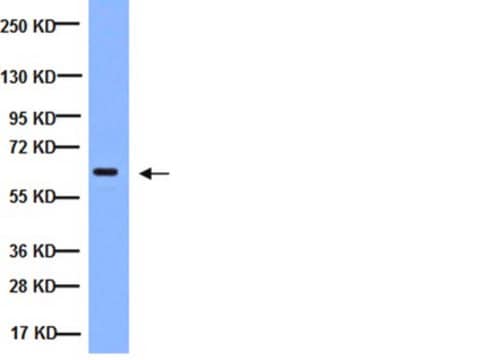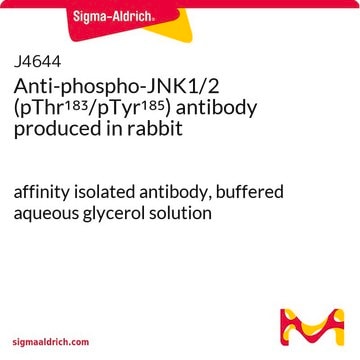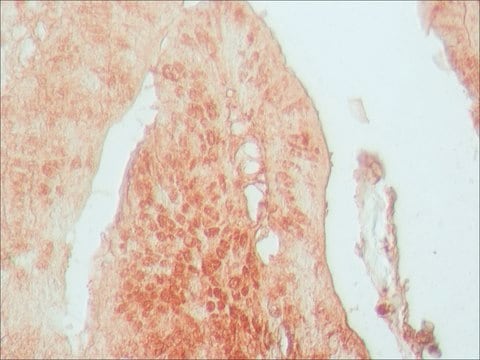J4750
Anti-JNK, Activated (Diphosphorylated JNK) antibody, Mouse monoclonal
clone JNK-PT48, purified from hybridoma cell culture
Synonym(s):
Monoclonal Anti-JNK, Activated (Diphosphorylated JNK) antibody produced in mouse
About This Item
Recommended Products
biological source
mouse
conjugate
unconjugated
antibody form
purified from hybridoma cell culture
antibody product type
primary antibodies
clone
JNK-PT48, monoclonal
form
buffered aqueous solution
mol wt
antigen 46 kDa
antigen 54 kDa
species reactivity
mouse, human, rat
concentration
~2 mg/mL
technique(s)
immunocytochemistry: suitable
indirect ELISA: suitable
microarray: suitable
western blot: 4-20 μg/mL using extract of human Jurkat cells activated with anisomycin
isotype
IgG1
UniProt accession no.
shipped in
dry ice
storage temp.
−20°C
target post-translational modification
unmodified
Gene Information
human ... MAPK8(5599)
mouse ... Mapk8(26419)
rat ... Mapk8(116554)
Looking for similar products? Visit Product Comparison Guide
Related Categories
General description
Specificity
Immunogen
Application
Biochem/physiol Actions
Physical form
Disclaimer
Not finding the right product?
Try our Product Selector Tool.
Storage Class Code
12 - Non Combustible Liquids
WGK
nwg
Flash Point(F)
Not applicable
Flash Point(C)
Not applicable
Certificates of Analysis (COA)
Search for Certificates of Analysis (COA) by entering the products Lot/Batch Number. Lot and Batch Numbers can be found on a product’s label following the words ‘Lot’ or ‘Batch’.
Already Own This Product?
Find documentation for the products that you have recently purchased in the Document Library.
Customers Also Viewed
Our team of scientists has experience in all areas of research including Life Science, Material Science, Chemical Synthesis, Chromatography, Analytical and many others.
Contact Technical Service











